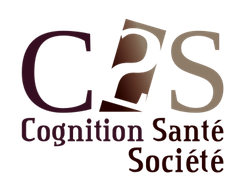Early maladaptive schemas, addictive beliefs and defensive styles among student cannabis users
Schémas précoces inadaptés, croyances addictives et styles défensifs chez des étudiants consommateurs de cannabis
Résumé
Objectives
Previous research suggested that cannabis addiction in young adults might be associated with dysfunctional schemas, cannabis-related beliefs and psychological defense mechanisms. To extend this previous research, the aim of the present study was to evaluate levels of activation of (a) early maladaptive schemas of Young, (b) cannabis-related beliefs based Beck's cognitive model of substance abuse (anticipatory, relief-oriented, permissive beliefs) and (c) defensive styles of Bond (mature, neurotic, immature) in a sample of cannabis users (no-problematic use, abusers, dependants) and healthy control subjects.
Participants and methods
One hundred and ninety-nine undergraduate students were enrolled. Participants were divided into four groups: Cannabis-dependent users (n = 24, mean age: 20.05 years; SD = 2.29), cannabis abusers (n = 40, mean age: 20.4 years; SD = 2.13), cannabis no-problematic users (n = 52, mean age: 19.9 years; SD = 1.8) and healthy control subjects (n = 83, mean age: 20.1 years; SD = 1.66). Participants were invited to complete seven questionnaires assessing (1) alcohol use disorders (Alcohol Use Disorders Identification Test [AUDIT]), (2) cannabis use disorders (Mini International Neuropsychiatric Interview [MINI]), (3) early maladaptive schemas (Young Schemas Questionnaire [YSQ-S2]), (4) cannabis-related beliefs (Beliefs Questionnaire for Drug Addiction – Cannabis Version), (5) defensive styles (Defense Style Questionnaire [DSQ-40]), (6) anxiety (Beck Anxiety Inventory [BAI]), (7) depression (Beck Depression Inventory – Second Edition [BDI-II]),
Results
Compared to healthy control subjects, cannabis no-problematic users and cannabis abusers, the cannabis-dependent users obtained significantly higher levels for (1) global score of fifteen early maladaptive schemas; (2) five early maladaptive schemas (Emotional Deprivation, Abandonment, Mistrust/Abuse, Insufficient Self-Control and Subjugation); (3) global score of positive cannabis-related beliefs and relief-oriented beliefs; (4) two immature psychological defense mechanisms (Autistic fantasy, Projection).
Conclusion
The present study confirms the results of previous research and suggests that cannabis dependence is associated with specific early maladaptive schemas and cannabis-related beliefs. We discuss theoretical and clinical implications of these findings.
Objectif
Cette recherche se propose de comparer le niveau d’activation (a) des schémas précoces inadaptés, (b) des croyances addictives et (c) des styles défensifs chez des consommateurs ou non de cannabis.
Participants et méthode
L’étude concerne 199 sujets qui sont soit non-consommateurs de cannabis (G1, n = 83), soit consommateurs non problématiques (G2, n = 52), abusifs (G3, n = 40) ou dépendants au cannabis (G4, n = 24). Chaque participant a complété sept questionnaires évaluant la consommation d’alcool et de cannabis, les schémas précoces inadaptés, les croyances addictives, les styles défensifs, l’anxiété et l’humeur dépressive.
Résultats
Les sujets dépendant au cannabis se différencient significativement des autres consommateurs (abusifs ou non problématiques) et des non-consommateurs par une suractivation (a) du score global des schémas précoces inadaptés ; (b) de cinq schémas spécifiques (Abandon, Abus/Méfiance, Assujettissement, Carence Affective, Manque d’autocontrôle) ; (c) de certaines croyances (soulageantes, addictives positives) et (d) de deux défenses immatures (Projection, Refuge dans la rêverie).
Conclusion
Ces données sont discutées en vue d’une indication thérapeutique efficiente ciblant une intervention sur les schémas et les croyances addictives suractivés chez les sujets présentant des troubles liés à l’usage du cannabis.
| Origine | Fichiers produits par l'(les) auteur(s) |
|---|

